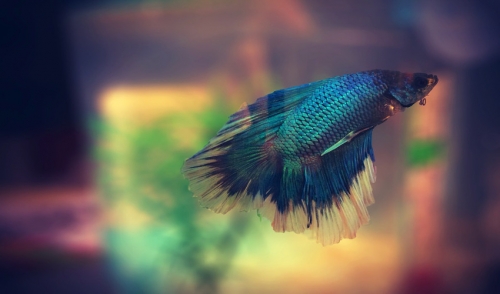{article.name}
Agway, NY -
Hometown Values & Service!
Chatham Agway: 518-392-3241
Claverack Agway: 518-851-5391
Great Barrington Agway: 413-528-2390
Millerton Agway: 518-789-4471
Fun Facts and Helpful Tips About Betta Fish

- Share this:
- Share on Facebook
- Pin on Pinterest
- Tweet on Twitter
Bettas are popular for small aquariums, but how much do you really know about these fantastic fish? Learning more about betta fish can help you decide they are right for you.
About Bettas
Betta fish (Betta splendens) are also called Siamese fighting fish for their native range and aggressive nature. Originally native to the Mekong River and its tributaries throughout Laos, Vietnam, Thailand and Cambodia, these fish are adaptable and also live in rice paddies and drainage ditches. They can be invasive species that threaten native fish in other areas, however, and are not generally welcome in wild habitats outside their range.
These fish are highly aggressive, and males will fight one another, often to the death. Even females can be aggressive, though they are usually more social than males. In a community aquarium, bettas will attack other brightly colored or flamboyant fish, but get along better with plainer, less colorful species.
Adult bettas grow to 2-3 inches long, not including the length of their fancy, flowing fins. Males have far more elaborate fins than females, and captive bettas have been bred to produce fins in a wide variety of shapes. Wild bettas have smaller fins and are generally dull, camouflaged shades of gray, brown or green, but captive bettas can be found in a rainbow of colors, including turquoise, orange, red, green, blue, gold, purple, yellow and copper, or combinations of those colors.
Bettas can breathe air or get oxygen through their gills, making them a good fish for less active tanks. With proper care, these fish can live 3-5 years.
Tips for Your Betta
If you want to adopt a betta or add a betta fish to your aquarium, it is important to provide proper care for the fish so it is as comfortable and healthy as possible.
- Tank Size: While bettas are often sold in tiny tanks or showcased in odd novelty aquariums such as brandy snifters or vases, they will be more comfortable in a 4-5 gallon tank or larger. This will allow plenty of room for plants and for the fish to swim comfortably.
- Water Quality: Bettas do best in water that ranges from a neutral (7.0) pH to slightly acidic. The water should be kept at 74-82 degrees. Bettas can tolerate a wider temperature range if necessary, but may become stressed at extreme temperatures.
- Companions: While male bettas should be kept alone, females can be kept in small groups in larger tanks where room is plentiful. If bettas will be added to a community tank, the other fish should be dull-colored and less aggressive to minimize fighting.
- Tank Care: Bettas can be relatively tolerant, but the tank will still need regular cleaning and water changing to keep the fish healthy. Small tanks may need cleaning several times a week, especially if there is only a small filter or no filter at all.
- Plants and Accessories: Bettas do well in tanks with some dense plantings, because the cover helps them feel secure and can minimize aggressive behavior. A small cave can also be useful, but avoid accessories with mirrors or reflective surfaces that can cause fighting.
- Proper Food: A diet of dried bloodworms and brine shrimp is best for betta fish, and food can be offered in pellet or flake forms. Do not feed more than the fish eats in 2-3 minutes, or else uneaten food will spoil and make the tank dirty faster.
Bettas can be beautiful fish to own, and understanding these fish and their unique behavior and needs can help you provide the best possible habitat for your betta to thrive.
© 2026 Millerton Co-op Inc.. All rights reserved.
Serving Millerton, NY - Claverack, NY - Chatham, NY - Great Barrington, MA and the Surrounding Communities.
View our accessibility statement
Driven by New Media Retailer
Agway® is a division of Southern States®



Comments